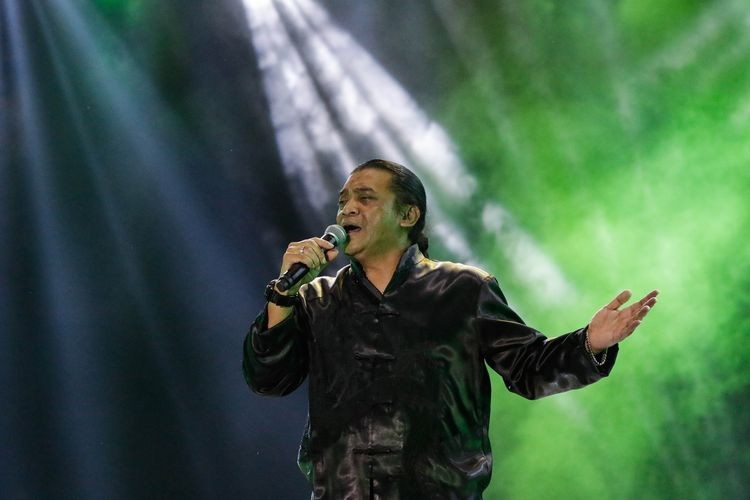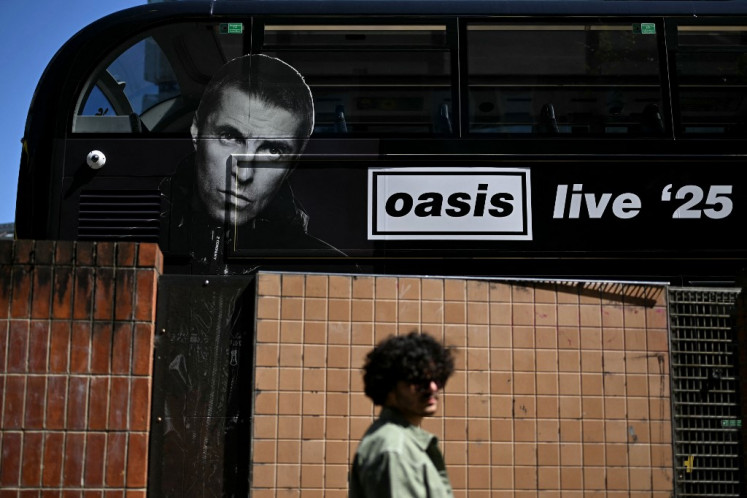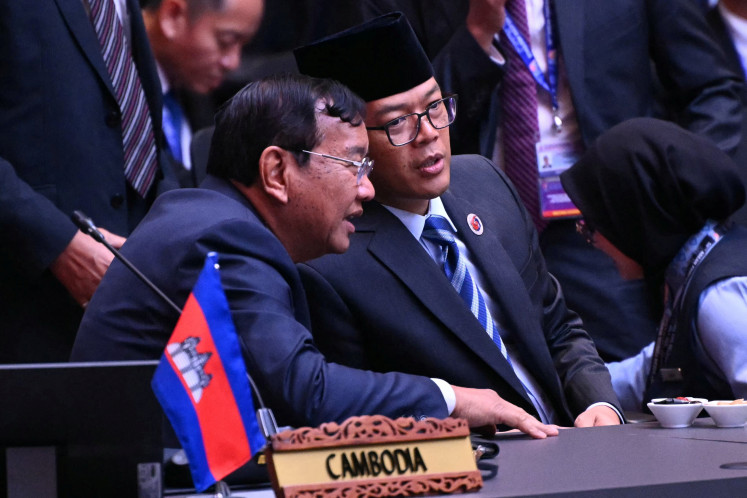Popular Reads
Top Results
Can't find what you're looking for?
View all search resultsPopular Reads
Top Results
Can't find what you're looking for?
View all search resultsFarewell, Godfather of Broken Hearts
Change text size
Gift Premium Articles
to Anyone
C
ampursari singer Didi Kempot passed away on Tuesday morning at Kasih Ibu Hospital in Surakarta, Central Java, at the age of 53, reportedly due to cardiac arrest.
Didi was buried later in the afternoon in Ngawi, East Java.
Known by his fans as “The Godfather of Broken Hearts”, Didi was born Dionisius Prasetyo in Surakarta on Dec. 31st, 1966.
From a young age, Didi was exposed to the arts; his father, Ranto Edi Gudel (Mbah Ranto), was a celebrated comedian and traditional artist, while his mother Umiyati Siti Nurjanah was a traditional singer from Ngawi.
Didi’s late older brother, Mamiek Prakoso, followed their father’s footsteps in becoming a comedian, eventually joining the Srimulat group.
However, Didi was a singer through and through, idolizing the singer Soedjarwoto “Gombloh” Soemarsono, who was his inspiration to join the music scene.
Even though his father wanted the brothers to learn the traditional gamelan just like he himself did, Didi was determined to become a singer, often playing in secret. At one point during middle school, he even sold his bicycle to purchase a guitar.
Didi’s career in the music industry got off to a humble start, when in 1984 he became a busker in Surakarta along with his five friends; Dani Pelo, Mamat Kuncung, Rian Penthul, Comet and Heri Gempil. Together, they created a band named Kempot, which stands for Kelompok Pengamen Trotoar (Sidewalk Buskers’ Group).
In 1987, Didi decided to try his luck in the capital, a decision he attributed to Yapto Soelistyo Soerjosoemarno, the leader of nationalist mass organization Pemuda Pancasila.
After three years busking in the streets of Jakarta, Didi joined the Musica Studio label in 1989, where he started singing the Javanese-language campursari songs that mostly center on heartbreak.
While his first album was not a commercial success, one of the songs in the album, “Cidro”, became a hit among the Indonesian diaspora in Suriname and the Netherlands. Other songs soon followed, such as “Sewu Kutho”, “Stasiun Balapan”, “Layang Kangen” and “Sri Minggat” to name a few.
Didi’s popularity in Suriname was also notable, as he held 12 concerts there throughout the years since his first one in 1993. So strong was his fanbase there that Didi won several music awards in Suriname, which he acknowledged in a song titled “Kangen Nickerie” (Missing Nickerie).
Nickerie is a district in Suriname.
“In the 90s, my songs were better known in Suriname than here,” Didi said in an interview once.
Indonesia as a nation started recognizing Didi Kempot as a formidable musician in 1999, with the song “Stasiun Balapan”, a song about a lover saying goodbye in a Surakarta train station.
Throughout his career, Didi received several accolades for his music, from the dangdut scene such as the Indonesian Dangdut Awards to mainstream honors like the Anugrah Musik Indonesia Awards.
In recent times, Didi found a new audience with the millennial generation, who became instantly smitten with his songs of heartbreak.
Calling themselves “Sadboys” and “Sadgirls”, these millennials organized quickly to form a fan club named Sobat Ambyar (friends of the heartbroken), becoming fanatics of the so-called Godfather of Broken Hearts.
Even President Joko “Jokowi” Widodo felt the loss of Didi, writing in his Instagram account @jokowi that he received the news this morning.
“My deepest condolences to the family of Mas Didi Kempot, to the Indonesian music scene, and to all Sobat Ambyar wherever they may be. Hopefully the deceased will find a place beside Him and the family given strength. Farewell, ‘Godfather of Broken Hearts’,” he wrote.
Throughout 2019 and 2020, Didi enjoyed massive popularity, ranging from advertisements to packed concerts filled with young fans. Throughout his journey of more than three decades, Didi released dozens of albums and created more than 700 songs.
His latest release before he passed was a lighthearted ditty titled “Ojo Mudik”, a song encouraging people not to return to their hometowns for the annual mudik exodus due to the COVID-19 pandemic. The song was recorded with Surakarta Mayor FX Hadi Rudyatmo.
Didi’s last performance was a two-hour charity concert on April 11 broadcast from his home, where viewers donated Rp. 7.3 billion ($482,246).
Blontank Poer, a friend of Didi, wrote on his Facebook account that the concert’s aim was not the amount of donations received, but rather the spirit of camaraderie and sharing of Indonesians supporting each other during the pandemic.
“One of the things I remember while discussing the concert was Didi’s words; ‘we want to entertain people however we can, lifting up spirits and creating peace. As an artist, I can only contribute by singing. It’s a pity that the people are only presented with arguing figures who feel that they are right, even though all they want is for their lives to be peaceful’.”










